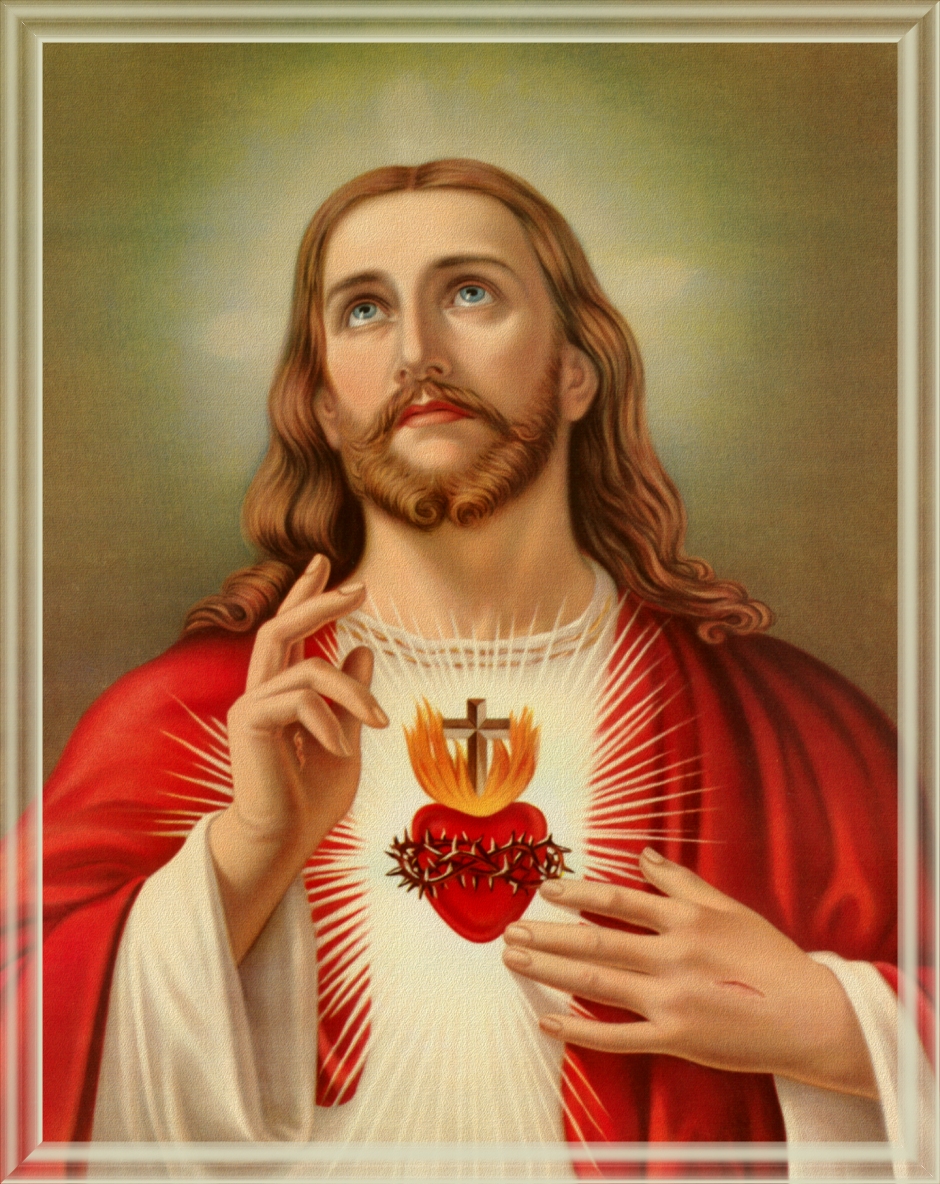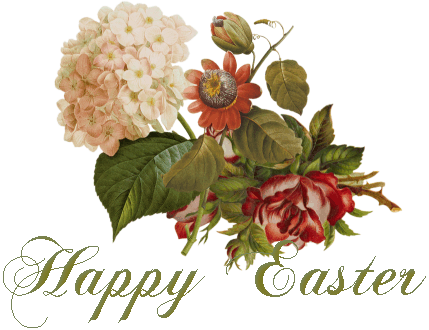  THE FEAST OF THE PRECIOUS
BLOOD by Abbot Guéranger XII TIME AFTER PENTECOST Book III The Blood of the Man-God, being the pledge of peace between Heaven and earth, the object of profoundest worship, the center of the whole liturgy, and our assured protection against all the evils of this present life, deposits, even now, in the souls and bodies of those whom it has ransomed, the germ of eternal happiness; The Church, therefore, in her Collect, begs of the Father, who has given us his only-begotten Son, that this Divine germ may not remain sterile within us, but may come to full development in Heaven. The special character of this festival: It was by his own Blood that the Son of God entered into Heaven; this Divine Blood continues to be the means whereby we also may be introduced into the eternal alliance. Thus, the old Covenant, founded on the observance of the precepts of Sinai, had likewise by blood consecrated the people and the law, the tabernacle and the vessels it was to contain; but the whole was but a figure. 'Now,' says St. Ambrose, 'it behooves us to tend to truth. Here below, there is the shadow; here below, there is the image; up yonder, there is the truth. In the law was but the shadow; the image is to be found in the Gospel; the truth is in Heaven. Formerly a lamb was immolated; now Christ is sacrificed, but only under the signs of the mysteries, whereas in Heaven it is without veil. There alone, consequently, is full perfection unto which our thoughts should cleave, because all perfection is in truth without image and without shadow.' There alone is rest: thither, even in this world, do the sons of God tend; without indeed attaining fully thereunto, they reach nearer and nearer day by day; for there alone is to be found that peace which forms Saints. 'O Lord God,' cries out in his turn another illustrious doctor, the great St. Augustine, 'give us this peace, the peace of repose, the peace of the seventh day, of that Sabbath whose sun never sets. Yea! verily the whole order of nature and grace is very beautiful unto thy servitors, and goodly are the realities they cover; but these images, these successive forms, bide only awhile, and their evolution ended they pass away. The days thou didst fill with thy creations are composed of morning and of evening, the seventh alone excepted, for it declineth not, because thou hast for ever sanctified it in thine own rest. Now what is this rest, save that which thou takest in us, when we ourselves repose in thee, in the fruitful peace which crowns the series of thy graces in us? O sacred rest, more productive than labor! the perfect alone know thee, they who suffer the divine hand to accomplish within them the work of the six days.' And the Apostle goes on to say, interpreting by means of other parts of Scripture his own words, just read to us by holy Church, 'And therefore today if ye shall hear his voice, harden not your hearts.' The Divine Blood has made us participators of Christ: it is our part not to squander, as though it were worthless, this immense treasure, this initial incorporation which unites us to Christ, the Divine Head; but let us abandon ourselves, without reserve, to the energy of this precious leaven, whose property it is to transform our whole being into him. Let us be afraid lest we fall short of the promise referred to in today's Epistle, that promise of our entering into God's rest, as St. Paul tells us. It regards all believers, he says, and this Divine Sabbath is for the whole people of the Lord. Therefore, let us make haste to enter in; let us not be like those Jews whose incredulity excluded them for ever from the promised land. The Gradual brings us back to the great testimony of the love of the Son of God, confided to the Holy Ghost, together with the Blood and Water of the Mysteries: a testimony which is closely linked here below with that which is rendered by the Holy Trinity in Heaven. If we receive the testimony of men, the testimony of God is greater, sings the Verse. What is this but to say, once again, that we must absolutely yield to these reiterated invitations of love? None may excuse himself by pleading either ignorance or want of vocation to a higher state than that to which tepidity inclines him. Let us hearken to the apostle addressing himself to all, in this same Epistle to the Hebrews: 'Yea, verily; great and ineffable are these things. But if you have become little able to understand them, it is your own fault; for whereas for the time you ought to be masters, you have need to be taught again what are the first elements of the words of God: and you are become such as have need of milk, though your age would require the solid meat of the perfect. Wherefore, as far as concerns us in our instructions to you, leaving the word of the elementary teaching of Christ, let us go on to things more perfect, not laying again the foundation of penance from dead works, and of faith towards God. Have you not been illuminated? have you not tasted also the Heavenly gift? have you not been made partakers of the Holy Ghost? What showers of graces at every moment water the earth of your soul! It is time that it bring in a return to God who tills it. Ye have delayed long enough: be now. at last, of the number of those who by patience and faith shall inherit the promises, casting your hope like an anchor sure and firm, which entereth in even within the veil, where the forerunner Jesus has entered for us------that is, to draw us in thither after Him.' On Good Friday we heard for the first time this passage from the beloved Disciple. The Church, as she stood mourning at the foot of the Cross whereon her Lord had just died, was all tears and lamentation. Today, however, she is thrilling with other sentiments, and the very same narration that then provoked her bitter tears now makes her burst out into anthems of gladness and songs of triumph. If we would know the reason of this, let us turn to those who are authorized by her to interpret to us the burthen of her thoughts this day. They will tell us that the new Eve is celebrating her birth from the side of her sleeping Spouse; that from the solemn moment when the new Adam permitted the soldier's lance to open his Heart, we became, in very deed, bone of His bone and flesh of His flesh.. Do not be surprised if holy Church sees naught but love and life in the Blood which is gushing forth. And thou, O soul, long rebellious to the secret touches of choicest graces, be not disconsolate; do not say: 'Love is no more for me!' How far away soever the old enemy may, by wretched wiles, have dragged thee, is it not still true, that to every winding way, perhaps even to every pitfall, the streamlets of this sacred fount have followed thee? Thinkest thou, perhaps, that thy long and tortuous wanderings from the merciful course of these ever pursuant waters may have weakened their power? Do but try; do but, first of all, bathe in their cleansing wave; do but quaff long draughts from this stream of life; then, O weary soul, arming thyself with faith, be strong, and mount once more the course of the Divine torrent; for, as in order to reach thee it never once was separated from its fountain-head, so likewise be certain that by so doing thou needs must reach the very source itself. Believe me, this is the whole secret of the bride------namely, that whencesoever she may come, she has no other course to pursue than this, if she would hear the answer to that yearning request expressed in the sacred Canticle: 'Show me, O thou whom my soul loveth, where thou restest in the midday!' Indeed, by reascending the sacred stream, not only is she sure of reaching the Divine Heart, but moreover she is ceaselessly renewing, in its waters, that pure beauty which makes her become in the eyes of the Spouse an object of delight and glory to Him. For thy part, carefully gather up today the testimony of the Disciple of love; and congratulating Jesus with the Church, His bride and thy mother, on the brilliancy of her empurpled robe, take good heed likewise to conclude with St. John: 'Let us then love God, since he hath first loved us.' <>The Church, whilst presenting her gifts for the Sacrifice, sings how that chalice which she is offering to the benediction of her sons, the priests, becomes by virtue of the sacred words the inexhaustible source whence the Blood of her Lord flows out upon the whole world. www.catholictradition.org/Easter/easter26b.htm |

